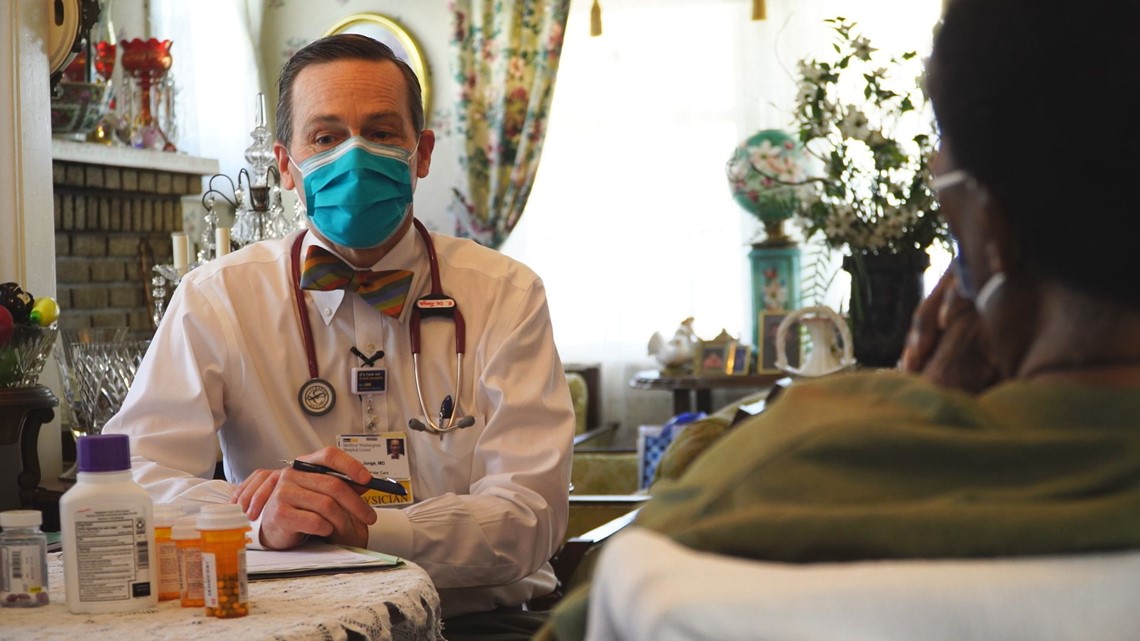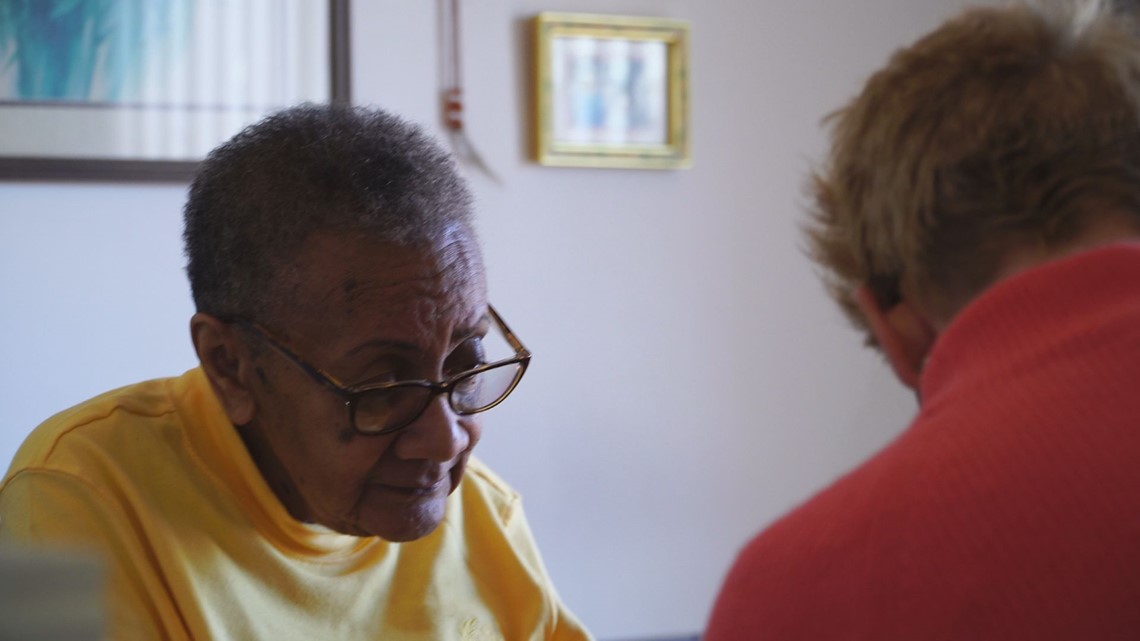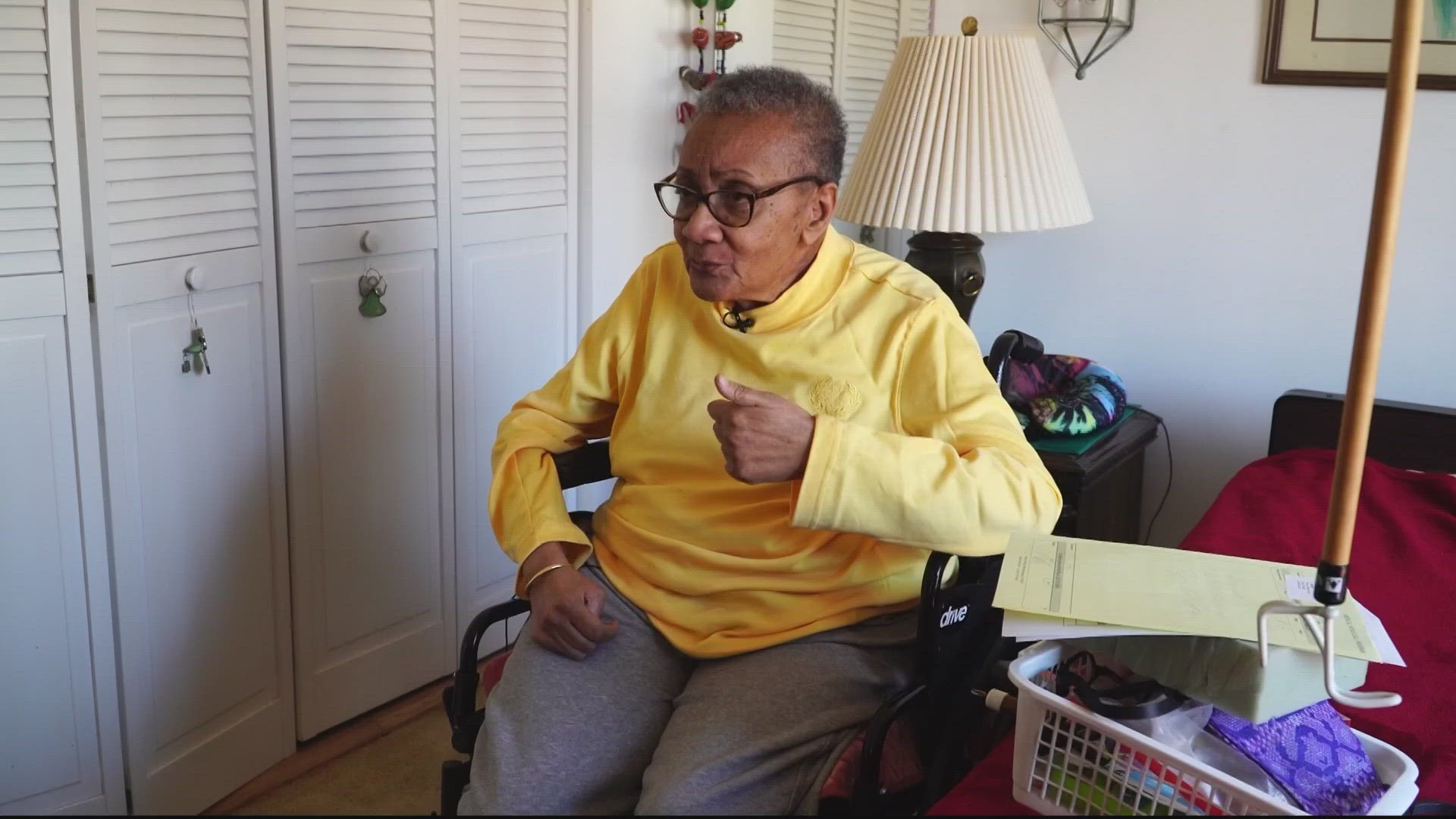WASHINGTON — When the coronavirus put a strain on health systems in cities, like New York, providers created "hospital-at-home," programs for patients with acute illnesses, but no need to be hospitalized.
But, this in-home healthcare is nothing new at Medstar Washington Hospital Center.
The local facility's nationally recognized program has been making house calls long before the pandemic hit for more than 20 years.
Dr. Eric De Jonge wakes up each day to make an impact. It starts in office 213 in the Northwest DC hospital center.
"I come in and I kind of get prepared. I get to look at my schedule and see what patients I'm going to see. I take notes, and map out my route," said Dr. De Jonge.
He makes sure his military bag is stocked with supplies, "devices to do wound care, ear and eye exam, gloves, gauze, thermometer," said the doctor, and has what he needs to make his rounds.
"Hi Mrs. Wood, how are you?" the doctor asked.
You see, De Jonge doesn't make his rounds in the hospital. He drives some 1200 miles a year, to make his rounds in his patients' homes.
Dr. Eric De Jonge co-founded the House Call Program at Medstar Washington Hospital Center more than two decades ago.


"The need was massive, you know, there's a huge number of patients in Medicare and in the District of Columbia who are very ill, homebound, have trouble getting to the doctor and land in the emergency room or hospital unnecessarily," the doctor said.
It was a way for him and his 15-member team of doctors, social workers, coordinators, managers and nurse practitioners to deliver healthcare to a very vulnerable and needy geriatric population.
"It's so much better to go their houses, see how they live, what they actually eat, where their medications are, and spend more time with them," said Nurse Practitioner Michelle Sullivan.
"It's very interdisciplinary, meaning, the patients and heir families need all those types of services to stay well, age at the home, get everything they need at home," De Jonge said.
Former business owner Richard Wood is one of the patients the doctor makes house calls to. He had a life-altering accident driving his recycling truck in 2003.
"It broke my spinal cord," Richard Wood said.
The toll of shuttling from nursing home to nursing home, doctor's offices and rehabilitation appointments took a toll on Richard and his wife of 60 years, Evelyn.
She said it has been wonderful for both of them to be enrolled in the House Call Program.
"He has wonderful nurses and doctors who come right here to the home and does every that's necessary, x-rays, no matter what it is, blood work, whatever, it's done right here. It has enhanced his life quite a bit," Evelyn Wood said.
Karen Pollock was diagnosed with progressive multiple sclerosis in 1994. The former ER nurse says access to the program's 24-hour care is reassuring and comforting.


"After hours, you can call and there's a physician you can talk to, with the House Call Program, I feel like I am a person and a patient," Pollock said.
"Feeling the impact that you can have, not just me, but our team has on a daily basis and relieving suffering," De Jonge said. "Keeping them out of the crazy ER, being available to them after hours, having a team in place that we can be a lifeline for them actually. You know, at the end of the day that makes it all worthwhile."
The good doctor adds that the goal is to prevent a crisis of stressing the family, a crisis call to 911 and prevent the patients from landing in the hospital.
According to the American Academy of Home Care Medicine that saves from 1,000 to $4,000 annually, per patient.
After a physical exam and a review of Robert Wood's medication, the good doctor asks if he has any questions before he begins to write out instructions for him.
"I think it's the future to do care in the home. And, I think care in the home is better for this subgroup of really high need or ill patients. That will allow insurance companies to really reduce the total cost of care" said Dr. De Jonge.
"This is probably one of the most powerful inventions that healthcare has invented in the last 30 years to reduce Medicare costs, and that's actually great for the taxpayers," he added.
There are certain eligibility requirements patients must meet for the Medstar House Call Program.

